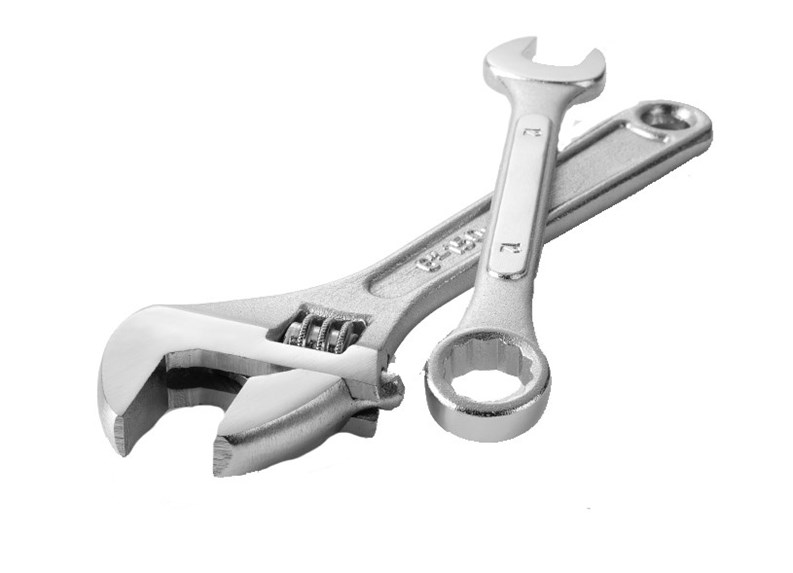Early in the 20th Century, and until the 1950s, the oil industry as we know it today did not exist. Homes were heated with coal, and some readers who wish to date themselves may still remember cleaning the ashes and soot out of a furnace or seeing someone else do so.
It was during the heyday of coal, the late 1920s, that a young man named Mauro Romita, an immigrant from a region in Italy called Bari who had arrived in America in 1916 and had worked for the New York-New Haven Railroad for a few years, started an ice and coal delivery business in the very small Castle Hill/Parkchester area of the Bronx. With the beginning of wide-spread home refrigeration, Romita stopped delivering ice, rented a small office on Westchester Square, purchased a six-ton capacity truck, and formed the Pelham Parkway Coal Company in 1928. This company delivered coal to local businesses and homes.
According to Louis Romano, senior vice president of Castle Oil, many people who came to the United States in the early 20th Century from Bari, Italy became involved in the oil industry, and many Italians in the industry today can trace their roots to this region.
Growing with the Industry
In 1930, the business grew to include a secretary and bookkeeper who handled the invoicing and also served as a weighmaster. The company soon included a large room for the sales and accounting departments, a small private office, a scale house, and an old wooden hopper that stored about 100 tons of coal. In 1933 to ‘34, during the height of the Great Depression, the business suffered but Romita managed to avoid bankruptcy and made it through the tough times.
In 1936, Romita acquired additional trucks to deliver heating oil to private homes. Conversion from coal to oil had begun and would later be mandated in the mid 1940s, allowing buildings which already had working fuel furnaces to maintain them but requiring all new heating systems to be fueled by oil. By the 1950s, when all homes were required to be heated by oil, Castle Oil stopped delivering coal altogether.
By 1945, Mauro Romita’s brothers had joined the family business on a full-time basis. All of the brothers performed whatever jobs were required of them. This included driving delivery trucks on occasion. Louis eventually took charge of the dispatching department, and Jack assumed responsibility for the fleet and all maintenance.
Mauro Romita was given a distributorship from Timken Rotary Oil Burners for No. 2 home heating oil, and opened the Romita Fuel Company sales office on 225th Street and White Plains Road in the Bronx. The name of the business was changed to Castle Coal & Oil Co., Inc. on the advice of his attorney because, during this era, prejudice against Italians was so commonplace that he believed the company would have a better chance of survival if Romita’s ethnic background were not publicized.
The Second Generation
By 1942, Michael, the eldest Romita son, who had begun working at the coal yard after school in the 1930s, was employed at Castle on a full-time basis as weighmaster. His initial responsibilities included weighing the coal trucks for the exact poundage and sales duties, but within a short time, he was involved in every facet of the business. He had actually begun working at the coal yard after school during the 1930s. Mary, the only Romita daughter, also worked at Castle after school each day and handled varied clerical work and bookkeeping tasks. She joined the firm at the completion of business school.
During the 1960s, Mauro Romita, Sr. went into semi-retirement, due to illness, but continued to remain involved in the business until his death in 1969. Mauro C. Romita, the youngest son, worked for a New York law firm for a short time after law school and joined Castle in 1968.
In 1973, the Organization of Petroleum Exporting Countries (OPEC), including such key oil nations as Iran, Iraq, Kuwait, and Saudi Arabia, embargoed oil exports to punish nations that had supported Israel in its recent war with Egypt. Prices for oil shot up from 38.5 cents per gallon in 1973 to 55.1 cents by June 1974 due to gasoline shortages. In response to the oil embargo, Castle Oil decided it needed to purchase its own oil terminals in order to maintain reliable business.
The company purchased its first oil terminal in 1981 on Tiffany Street in the Bronx. Since then, it has purchased three other terminals, one in Astoria, Queens, one at 138th and Locust Avenue in the Bronx, and one in Sleepy Hollow, New York. Castle’s first terminal is now leased out to the city as a waste reclamation site, and the terminal on 138th and Locust is its flagship terminal, housing about 100 delivery and service trucks. Until the Arab embargoes, Castle Oil was still just a trucking company. As a supplier, it had to adjust to the new responsibilities of keeping its oil within regulations.
Deregulation
In the past two years, the biggest change that has taken place in the fuel industry has been the Federal Energy Commission’s deregulation of utilities. This means that, although utility lines may still be owned and supplied by large companies such as Con Edison or Brooklyn Union, consumers can now buy their fuel commodities (e.g. oil or natural gas) from other suppliers. This should result in more competition, which should lower the costs of utilities for the consumer. Because of this important change, Castle Oil, which once changed from coal to oil, has now begun to supply natural gas to its customers. As a fuel source, natural gas is advantageous because it is readily available, cleaner burning, and requires less maintenance. Soon, the memory of having someone fill an oil tank may date us.
Today, Castle remains a family-owned and operated business. Throughout the New York metropolitan area, including Westchester County and Northern New Jersy, Castle provides fuel for apartment and office buildings, manufacturing plants, private homes, schools, hospitals and places of worship.
Ms. Hoodiman is a freelance writer living in Astoria, New York.







9 Comments
Leave a Comment